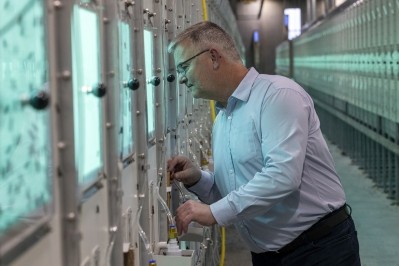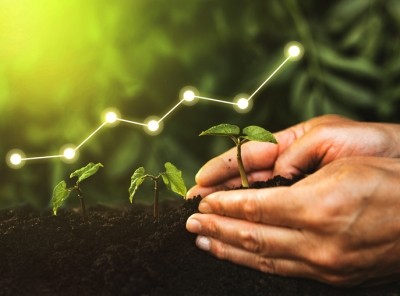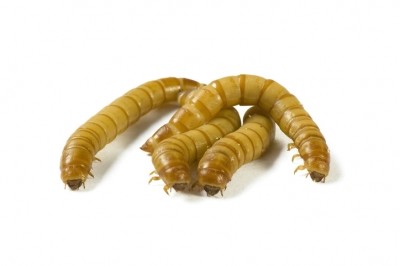Special Edition: Aquaculture Feed Innovation
Danish insect production kick-started

The company, created in 2017, is looking to produce 30 tons of live larvae per day four years from now.
Supporting ENORM in that endeavor, which has been granted €2.1m (US$ 2.4m) from the Ministry of Environment and Food Denmark, are feed producer, Aller Aqua, the Danish Technological Institute, DTU Aqua, Hanneman Engineering and Champost.
Jane Lind Sam, partner at ENORM, told FeedNavigator the company's first insect production site will go live in January.
It has a lab in the same location, and has been carrying out research there for the past 12 months:
“We had been working [in relation to research] on the food side, with imported mealworms for the past three years. During that time, we had also being investigating the possibility of establishing our own insect factory here in Denmark. That process involved both research [activities] and talking to people. We were trying to find out whether we could partner with someone; it ended up that we could have, but then we decided, with the knowledge we have, to establish it [a factory] ourselves.
“We know the research [element] is a big part of it. Thus, we established the lab on day one; that was the very first thing we did. An insect specialist from Brazil, a PhD student in biology, has been working in our lab for the past year.”
While the first objective for ENORM is 30 tons of live larvae per day by 2021, she said the company is looking to achieve output of 100 tons of live larvae per day at the current production site in Denmark by 2023. “Dry matter would be about a third of that.”
Target markets
The company expects most of the final ingredients produced - insect protein meal and insect oil - to be used in feed.
Targeting fish feed initially, pig and poultry production will also be on the cards, but it is legislation dependent, evidently.
“Right now the markets are not that interested as it is not allowed. The potential for alternative proteins in the pig and poultry sectors, however, is just as big as in the fish feed one. The products used would be more or less the same; we wouldn't have to change a lot of things here to be able to supply new sectors.”
The team is also looking to develop food ingredients based on BSF larvae. Indeed, ENORM is sending a dossier to the EU next week in relation to BSF powder as novel food, she added.
“Everything we do here will be of food quality.”
As well as Jane Lind Sam, the other co-founders of ENORM are Carsten Lind Pedersen, who has a background in pig production and premix manufacturing, and Lasse Hinrichsen.
Six goals of the project
The six main activities of the €2.1m grant-aided project are:
- Research and development concerning the biological conditions for BSF reproduction and larvae rearing (ENORM & Danish Technological Institute)
- Research and development for technical solutions to automate the production (ENORM, Danish Technological Institute and Hanneman Engineering)
- Demonstration of the whole BSF life cycle and processing – 1,5 ton of live larvae per day – and stable egg production (ENORM)
- Scale up to 30 tons of live larvae per day and processing (ENORM)
- Trials to support development of fish feed with BSF ingredients included (ENORM, Aller Aqua and DTU Aqua)
- Trials to generate value from BSF fertilizer (ENORM, Champost and Danish Technological Institute)
Fish feed research
Aller Aqua’s role will be to help develop and test products suitable for trout farming. Should this succeed, insect meal could also be tested as an ingredient for feed for salmon and tilapia.
Research and trials will be carried out at Aller Aqua Research in Büsum, Germany.
Aller Aqua said that insect meal has the potential to be a valuable raw material in fish feed not only due to its high protein content. It noted that while several trials on the inclusion of insect meal to replace or partially replace fishmeal in fish feed have been carried out and have shown promising results, further research is still needed before commercial application.
Hans Erik Bylling, group president and CEO, Aller Aqua, told us one of the research objectives would be to explore where insect protein best fits in terms of life-stage, whether it would be more cost effective to use it at the juvenile stage only, for example.
“That is what we want to find out, where will it pay best. Will it perform best in younger animals?”
Other companies are further on than ENORM, he said. “ENORM is just starting out. Other companies like Ynsect in France and those in Holland are [at a more] advanced stage. I hope that they can all talk together. I hope they will, as it would be interesting to see how [this industry] can develop.”













